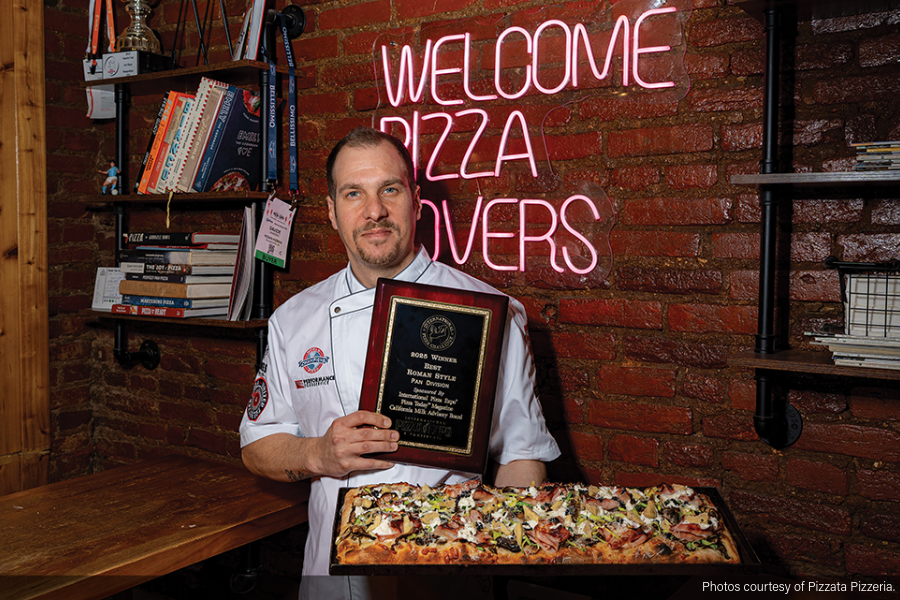Eliminating spoilage, waste can affect your bottom line

The bottom line in your business is king. Making a profit is how we generally measure our success and keep our doors open. After all, how long can an operator go on in business while consistently losing money? I guess that all depends on how deep his or her pockets reach.
In many cases, operators spend far more time focusing on increasing sales in order to raise their profits instead of finding ways to reduce costs, which will also provide an increase in profitability.
Here’s the catch. Finding new business generally costs us advertising dollars. Reducing waste, on the other hand, brings dollars immediately to your bottom line. And that’s a goal we all share in common.
Food waste and/or the elimination of it can literally make or break your business.
In my travels and consulting around the country over the years, I have seen a common theme in operators looking to make more money, but often looking in the wrong places. Sure, there is going to be SOME waste from time to time. But I’ve seen the kind of waste that practically made my head spin and stomach turn all at the same time — and the operator was oblivious to the fact that big bucks were just flowing out to the dumpster on a daily basis.
Let’s focus on some areas that every operator can tighten up on with their controls that will save you money:
• Organization of your entire inventory sounds like a no brainer, but almost everywhere I’ve been seems to have an element of not having enough space designated for their products. This ultimately creates small clusters of chaos with things shoved in random places, making it nearly impossible to grasp what you really have on hand. That’s when product gets ordered that you really didn’t need, tying up inventory dollars that you didn’t need to. When this happens with perishables or your inventory is not laid out in an organized fashion, you will ultimately order product that is not yet needed. It will expire and need to be discarded before you get to use it. This is the fastest way to negate any hopes of the kind of profit you desire.
• Rotation and properly maintained refrigeration equipment are crucial to eliminating waste. Preventative maintenance on our equipment is one of the smartest investments we can make and ultimately less expensive. Without it, it always seems that we notice our refrigeration temp is running high when we are at peak volume, which is usually a weekend. Now we need an emergency late night or weekend repairman coming out, which is always more costly. Oh and if you need a part that he doesn’t have access to until Monday, you’re really up the creek without a paddle.
F.I.F.O.: We know what it means, and we preach it to our staff. First in, first out teaches them that the oldest product must get used first. Otherwise, putting new product in front of old will simply allow what was perfectly good and usable product to end up in the dumpster! More money down the drain…Ouch! The most effective way to do this is to date everything. If you don’t want to purchase stickers made especially for this purpose, a simple slice of masking tape and a permanent marker will do the trick.
 • Knowing your menu mix will allow you to set up proper prep lists for each day of the week. More and more operations have a POS system these days than ever before. I’ve come to realize that more than 50 percent of managers don’t know how to tap into their menu mix. This is a phenomenal and valuable tool your POS system offers you. Otherwise, you’re just guessing at what to prep when you don’t need to. I know that if you have someone who’s been doing this for years, they know just what to prep without a report telling them what they need. However, don’t underestimate the power of this tool. “Eighty-sixing” or running out of product creates a loss in that sale. Over-prepped items often end up in the garbage can because they have expired. In either case, money can be lost by not prepping what is necessary.
• Knowing your menu mix will allow you to set up proper prep lists for each day of the week. More and more operations have a POS system these days than ever before. I’ve come to realize that more than 50 percent of managers don’t know how to tap into their menu mix. This is a phenomenal and valuable tool your POS system offers you. Otherwise, you’re just guessing at what to prep when you don’t need to. I know that if you have someone who’s been doing this for years, they know just what to prep without a report telling them what they need. However, don’t underestimate the power of this tool. “Eighty-sixing” or running out of product creates a loss in that sale. Over-prepped items often end up in the garbage can because they have expired. In either case, money can be lost by not prepping what is necessary.
• Checking for quality delivery is something we assume our managers are committed to each and every time a truck comes in. I’ve seen with my own eyes that someone just signs the invoice without checking the quality of the produce or even making sure everything is even there. I had someone tell me that their delivery driver has to scan everything now so it has to “all be there.” That is not an accurate statement. There are picker errors where the right sticker the driver is scanning is on the wrong product, and I’ve seen a driver scan something on his truck and forget to bring it in or take it out of his bag attached to his hand cart. The bottom line is restaurants have lost lots of money over the years by paying for something they didn’t get or a product that is ruined, out of date or about to expire. Make a big deal about this with your entire team, and teach your staff to look for these issues when they’re accepting any delivery. It will save you money and give your employees a sense of accountability for the quality of the products they will ultimately pass on to their customers.
Creating something new is an awesome way to maintain a zero-waste policy. Not all of your staff is creative. But, believe it or not, you’ve probably got some team players that have great food ideas. If you notice that an item has been a slow mover this week for some unbeknownst reason and you don’t want it to expire, create a special out of it. Steak bomb subs may be one of your biggest sellers, but not so much this week. You’ve got to move it or you might lose that expensive steak. Create a Steak Bomb Pizza or flat bread that isn’t already on your menu. Make a big deal of it to your patrons. Answer the phone with a greeting of “Thank you for calling X Pizzeria, would you like to try our amazing steak bomb pizza special?”
Zero waste should be your goal. Work at it and let your staff share ideas on eliminating waste. This needs to be a priority in every business.
Jeffrey Freehof is a frequent Pizza Today contributor, Pizza Expo speaker, chef and restaurant consultant.







